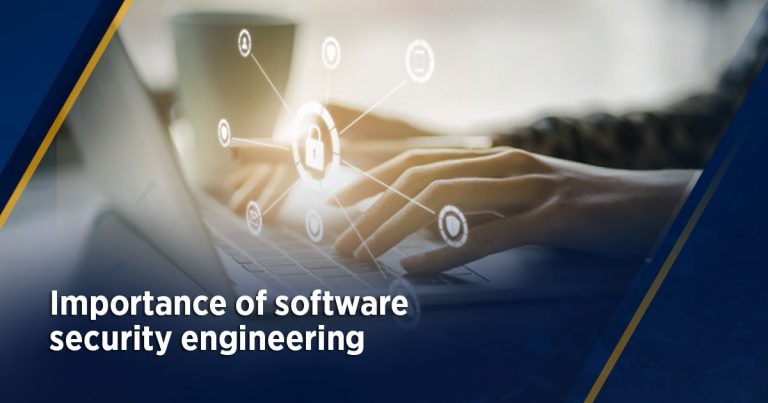
The global digital landscape is becoming more distributed, complex, transformative, innovative, and growth-oriented. If this is good news then the converse is also true in the form of rising cyber threats. According to Cybersecurity Ventures, the expanding footprint of cybercrime is expected to cause a loss of $6 trillion globally by 2021. And with more number of enterprises looking at embracing or migrating to technologies like the Internet of Things (IoT), AI, Big Data, and Cloud, and others, the stakes for securing the IT infrastructure by incorporating security testing in their value chain have become high. Let us delve into some mindboggling figures to understand the enormity of the issue.
- Around 4.1 billion records were breached in the first half of 2019 (Source: Varonis)
- Cybercriminals attack every 39 seconds, 2,244 times a day on an average (Source: Univerity of Maryland)
- 57% of companies faced phishing or social engineering attacks (Source: Ponemon Institute)
The above-mentioned real threat scenarios have multiplied the risk for companies with cybercrime arguably becoming the number one challenge facing the global IT industry. However, the good news is that several stricter legislations have been passed across the world to counter this menace. These include HIPAA, SOX, ISO 27001, and GDPR, among others. The increased sophistication of cyber-attacks means the traditional software security measures are not enough. Today, enterprises need software security, which is far more comprehensive, future-focused, and built into the product development lifecycle.
In other words, security testing should be an integral part of the build cycle instead of being an adjunct to the testing process as per the traditional testing model. Any software security testing exercise should offer a 360-degree view of an organization’s security ecosystem. This helps to identify and fix the blind spots or vulnerabilities and anticipate the forthcoming threats – to secure the organization and accelerate its transformation and growth. So, like quality engineering, security engineering needs to be implemented to enhance the capabilities of an organization in fighting cybercrime.
What is security engineering?
It is a process of adding and implementing security controls into the IT infrastructure including the information system to make the former an integral part of the organization’s operational capabilities. In the DevSecOps model of development, security should be integrated into all phases of the SDLC with every department and stakeholder accountable in ensuring the security of the system. Security engineering services involve practices and principles that are incorporated in the design, development, implementation, and execution of technical controls.
Implementing security engineering into the product build cycle
The steps of implementing security engineering services into the SDLC are as follows:
- Develop criteria for monitoring system security followed by a baseline design for the security system. Thereafter, conduct security threat analysis and vulnerability studies.
- Validate the security baseline design, lay down performance indicators for security software and hardware, and fix threats and glitches using modifications in system design and using risk management techniques.
- Design the security system and integrate the same into the SDLC.
- Address any security threats and concerns using risk management techniques.
Why is software security engineering important?
Software security engineering involves security testing services, processes, techniques, and tools to address any security-related issue in the SDLC. It ensures the IT infrastructure is resistant to sudden system failures or any intentional attack. The other benefits are:
- The software secured through software engineering is able to identify, pre-empt, withstand, and recover from malicious attacks.
- Helps to build reliable and glitch-free software which can continue to function in the face of malware attacks, abuse or misuse, and unintentional failures.
- Allows quick, effective, and efficient fix of the attacks directed at the software application and its surrounding ecosystem.
- Offers greater agility and speed for teams dealing with application security testing.
- Ensures early identification of vulnerabilities, which if left unattended could be exploited by hackers to swoop into the system. The built-in security measures can allow these vulnerabilities to be fixed and ensure the transfer of data between modules is made more robust through encryption.
- The principle of ‘secure by design’ is implemented. Thereafter, through automated application and web security testing the security review of code is executed. It empowers developers to leverage secure design patterns while building software modules.
- Reduces the cost of redevelopment as the built-in secure software design detects and fixes security issues during the development phase.
Conclusion
In the face of growing cybersecurity scares, enterprises should leverage software engineering services to ensure the code under development remains free of glitches and can withstand (and recover from) any malicious threat. This helps to secure the interests of the organization, clients, and end-customers.
Article Source:
https://community.nasscom.in/


- Agile Testing
- Artificial intelligence
- continuous integration
- Devops testing
- Digital Assurance Testing
- Digital Assurance Testing
- Digital Testing
- ERP testing
- functional testing
- IOT Testing
- load testing
- medical device testing
- medical device testing
- medical devices testing
- Mobile Testing
- performance testing
- performance testing
- performance testing
- quality assurance
- quality assurance
- Quality Engineering
- Regression Testing
- salesforce testing
- Salesforce Testing
- Security Testing